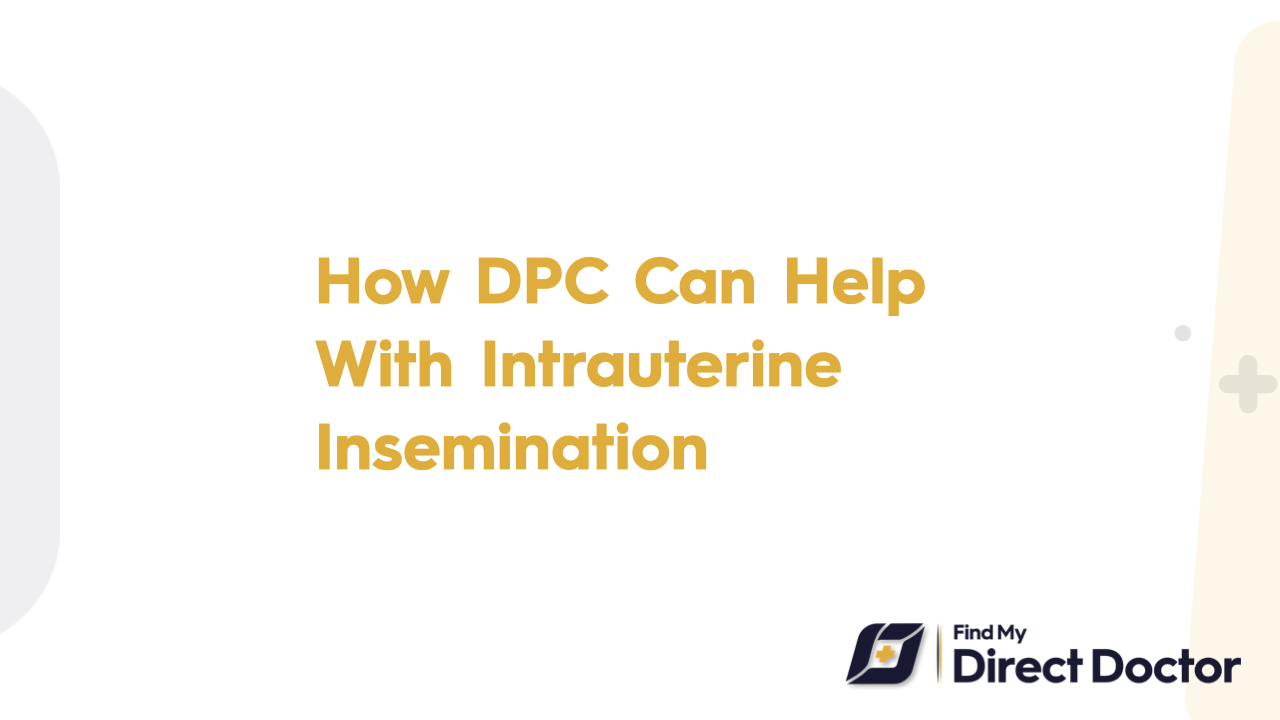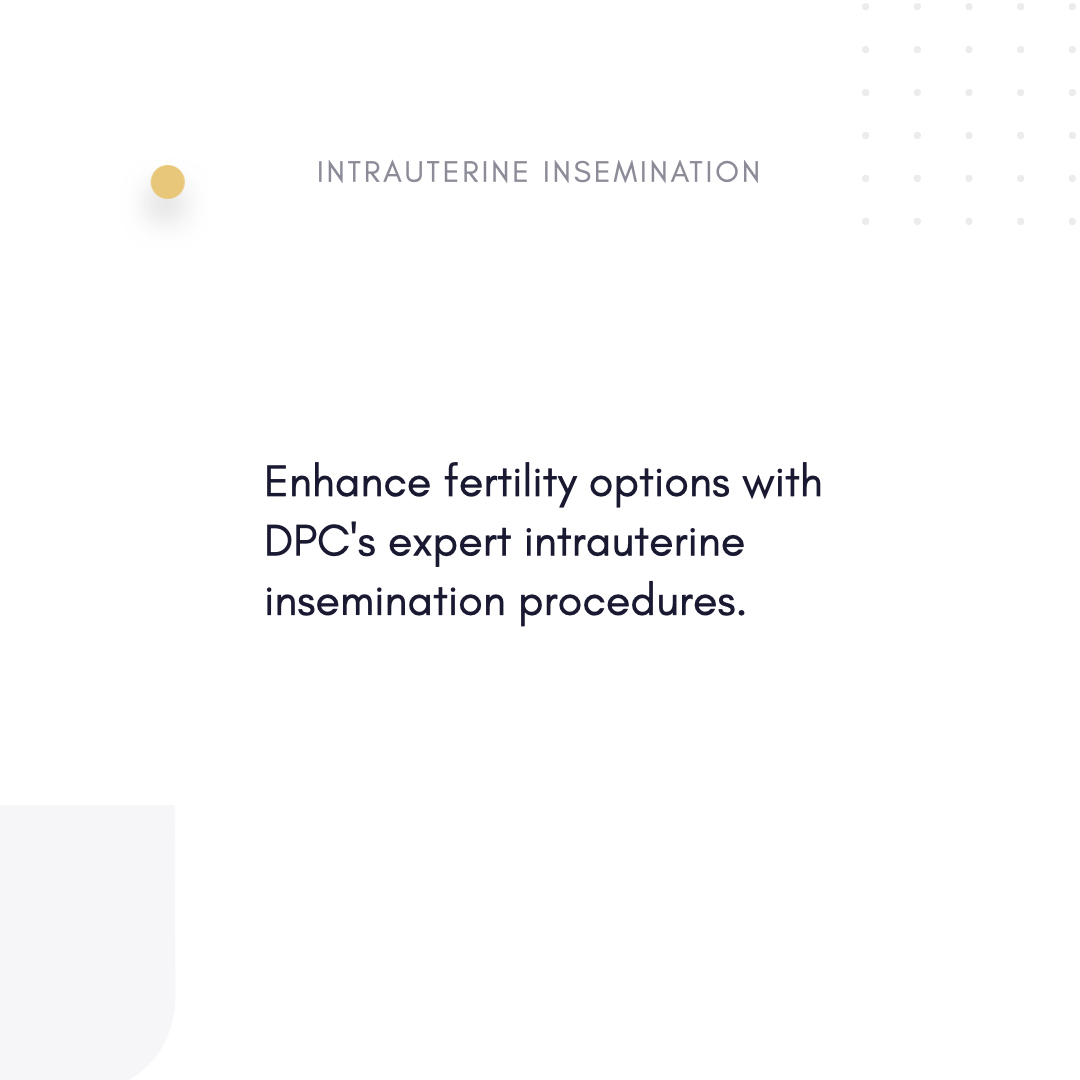Intrauterine Insemination (IUI) and Direct Primary Care (DPC): Personalized Fertility Support
If getting pregnant is still hard even with timed intercourse, IUI can help, and DPC makes sure that this fertility treatment is done with care, knowledge, and compassion.

Understanding IUI: How to Help Natural Conception
IUI involves putting washed sperm directly into the uterus during ovulation to improve the chances by:
- Getting around cervical barriers: For hostile cervical mucus.
- Focusing on moving sperm: This is especially helpful for mild male factor infertility.
- Timing with ovulation: using clomiphene, letrozole, or trigger shots.
Important information for patients:
- Uses: Unexplained infertility, mild male factor, and problems with the cervix.
- Safety: Low risk; mild cramping or infection may occur.
- Costs: DPC has clear prices, while a normal IUI cycle costs between 300 USD and 1,000 USD.
Risks of putting off treatment:
- A decrease in fertility due to age.
How DPC Makes IUI Work Better
Direct Primary Care (DPC) changes how fertility care is done by putting the patient first and giving them personalized support:
1. Monitoring and Timing the Cycle Exactly
- Tracking ovulation: Using ultrasounds and LH surge detection to find the best time to inseminate.
- Medication management: Give letrozole or gonadotropins to get follicles going.
- Sperm preparation: Work with andrology labs to wash the sperm.
2. Improving overall health
- Lifestyle counseling: Suggest the Mediterranean diet, CoQ10, and ways to lower stress.
- Managing comorbid conditions: Deal with diabetes, PCOS, or thyroid problems.
- Partner involvement: Analyzing semen and making lifestyle changes for male partners.
3. Kind emotional and financial help
- Access all the time: Take care of side effects from medications right away (for example, hot flashes).
- Mental health resources: Find a therapist who works with people who are having trouble getting pregnant.
- Clear costs: Put monitoring, insemination, and medications into one price.
Success Stories from Real Life
- Case 1: Emma, 32, who can't get pregnant for no known reason. Emma's DPC team did three IUIs with letrozole, and she got pregnant and had a healthy baby.
- Case 2: John and Maria, both 35, had mild male factor DPC. They had sperm washing and IUI, and they were successful on the second cycle.
IUI in DPC: Frequently Asked Questions
- Q: How many cycles of IUI should we try?
- A: 3–6 cycles; DPC checks progress every month to make changes to plans.
- Q: Can IUI use sperm from a donor?
- A: Yes. DPC helps you get in touch with cryobanks and lawyers.
- Q: How many times does it work?
- A: 10–20%, depending on age and how fertile you are.
- Q: Do they include medications for fertility?
- A: Yes. DPC gives prescriptions for and keeps track of letrozole, Clomid, and trigger shots.
Why DPC is the best place for fertility care
The American Society for Reproductive Medicine (ASRM) stresses personalized protocols. DPC delivers by:
- Cutting down on wait times: 90% of people start IUI within one menstrual cycle instead of the usual three months or more.
- Better results: Changing your lifestyle can increase your chances of success by 30%.
- Saving money: Members save between 500 USD and 2,000 USD a year by getting all of their care in one package.
Final Thoughts
IUI in a DPC setting isn't just a medical procedure; it's a carefully planned path to becoming a parent. With DPC, you get a partner who makes sure that every part of your cycle is as good as it can be, from when you ovulate to how you feel emotionally. This way, each cycle brings you closer to holding your baby. There are no assembly-line clinics or hidden costs—just caring professionals who give you hope with every insemination.






